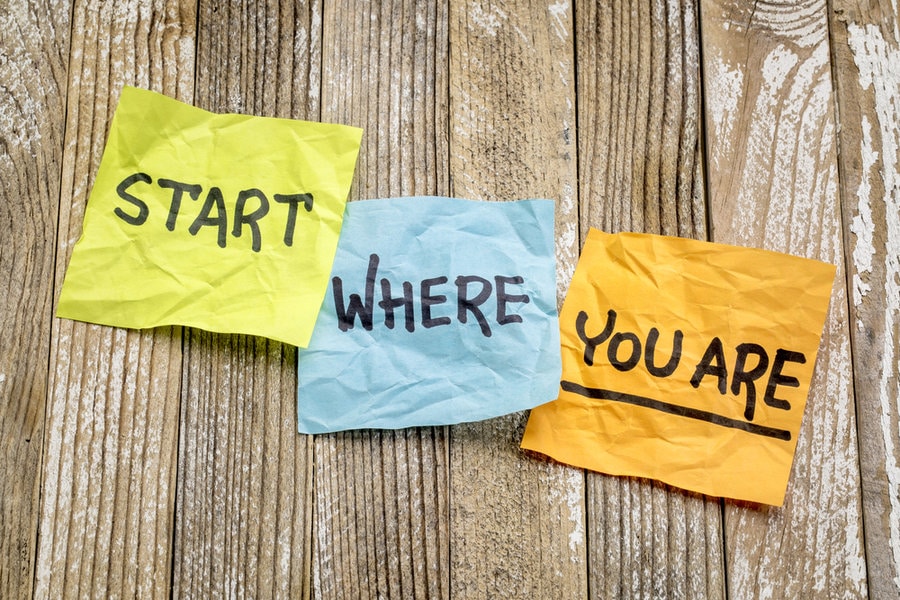The feeling of overwhelm is a common symptom of anxiety. Our anxiety levels increase when we feel like we have taken on more than we are capable of.
We can all feel anxious from time to time, but for some it’s a serious condition that makes it hard for them to cope with daily life. Medication is sometimes required, but today we are going to look at some simple ways to help us conquer the feeling of overwhelm.
Top 8 Tips To Help You When You’re Overwhelmed
1. Find a quiet place in your home where you feel safe and that is devoid of any outside noise.
Preferably an area that doesn’t have bright lights or anything that stimulates your brain. The aim is to have a little sanctuary where you can escape the daily grind. Concentrate on your breathing and allow the release of tension through your body. Take as long as you need. Once you feel more relaxed, refocus and think about what your next steps should be.
2. Make a list.
Forbes magazine says, “one of the most satisfying aspects of creating a to-do list is crossing off things when they are done. It gives you a sense of accomplishment and gives you a visualization of progress.”
3. Consult a calendar.
Schedules, time frames or timelines will help motivate you. If you have a chronic illness for example, you know that some days are simply a write-off. Your list of priorities are limited and waiting for a day when you feel better will be far more productive than pushing yourself too hard.
4. Enlist some recruits.
Asking for help is not weak, it’s wise. Consider which of your family or friends can help you with the task that is overwhelming.Good friends will be more than happy to help. Be brave and ask. If they say no, don’t give up. Choose another person who may be more willing.
5. Turn off.
Admitting you can’t deal with something right now doesn’t mean you won’t be able to deal with it another day. Today’s just not the day. Switch your brain off and stop thinking about it. Tackle it another day. This is not a green card for procrastinators. This is a coping mechanism allowing yourself time-out.
6. Pay someone to do it for you.
Sometimes the task or situation we find overwhelming can be outsourced to an independent third party. I’m talking about things like moving house and paying someone to do the end of lease clean. Or you can manage a weekly clean but need help with bigger jobs like windows and gardening.
7. Exercise.
According to the Mayo Clinic, “the links between anxiety, depression and exercise aren’t entirely clear — but working out and other forms of physical activity can definitely ease symptoms of anxiety or depression and make you feel better.” If the thought of exercising fills you with dread, simply going for a walk will get your blood pumping and help clear your head.
8. Be brave.
Toughen up. Get the job done. Change your mindset. Sometimes you know what you have to do, but fear or lack of motivation holds you back. Set a date, jump right in and get it done. You’ll feel so much better when you do.
You can find more practical tips on managing anxiety and the feeling of overwhelm at Beyond Blue. If you feel you need further help or guidance, please contact your general practitioner for professional advice.
Please feel free to share your best tip to help you stay focused and organized when you’re feeling overwhelmed.


I agree making a to-do list and crossing stuff off feels good.
Without a list I am all over the place and can’t keep track of anything I’m doing.
Really?!? “Just DO it!”?!?
If I could “just do it” I would have no need of an article like this!!!
Which part of the article are you referring to? We don’t actually say that anywhere…
Such a nice reminder, thank you. When home has pending projects in seemingly every corner, reserving space, even just a favorite chair, for sanctuary is critical. I sometimes use the trick of simply washing my hands as a literal method to match the figure of speech. It creates a moment to take a deep breath, “wash my hands” of whatever negativity is happening in that moment, and start fresh.
One of the side affects of a stroke where neurotransmitters are damaged can be the tendency to feel overwhelmed. With very few side affects, after my stroke, I had to be careful about getting overwhelmed in crowds or other busy situations. Fortunately, my family and friends knew this and would accompany me as a help for whatever I may encounter. It became more manageable after time. This articles gives me more actions should it arise again. Thank you for the insight.
I needed to read this. I have an injured ankle. I went to the doctor yesterday and found out that I have to stay off my feet.